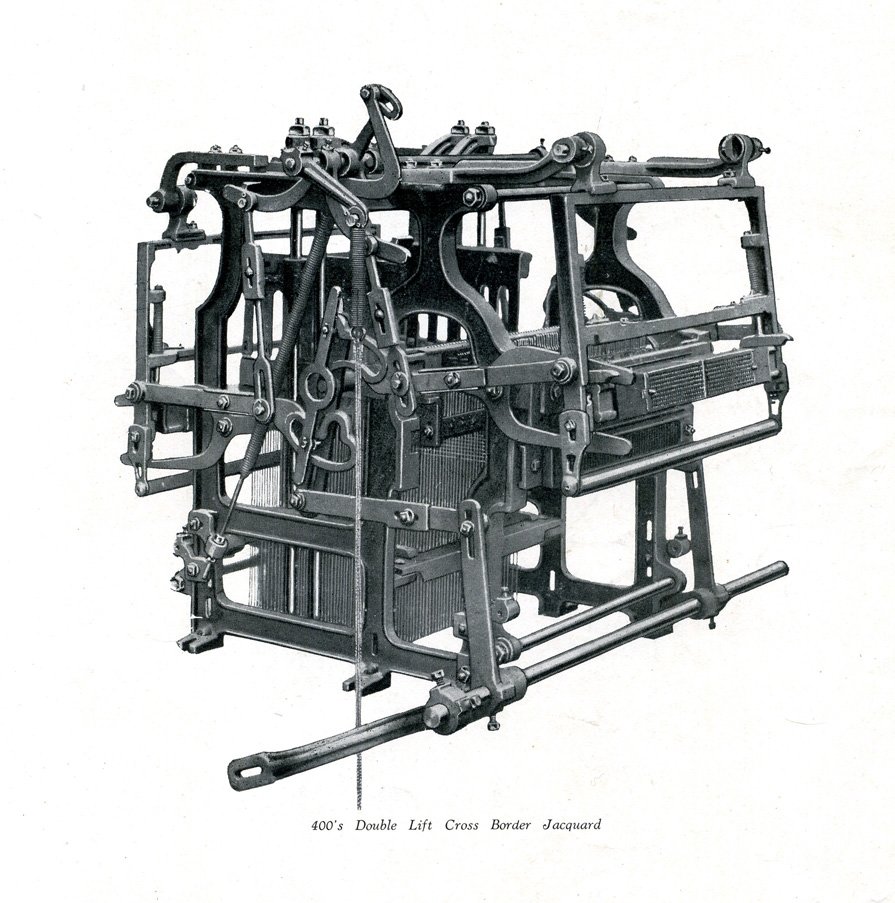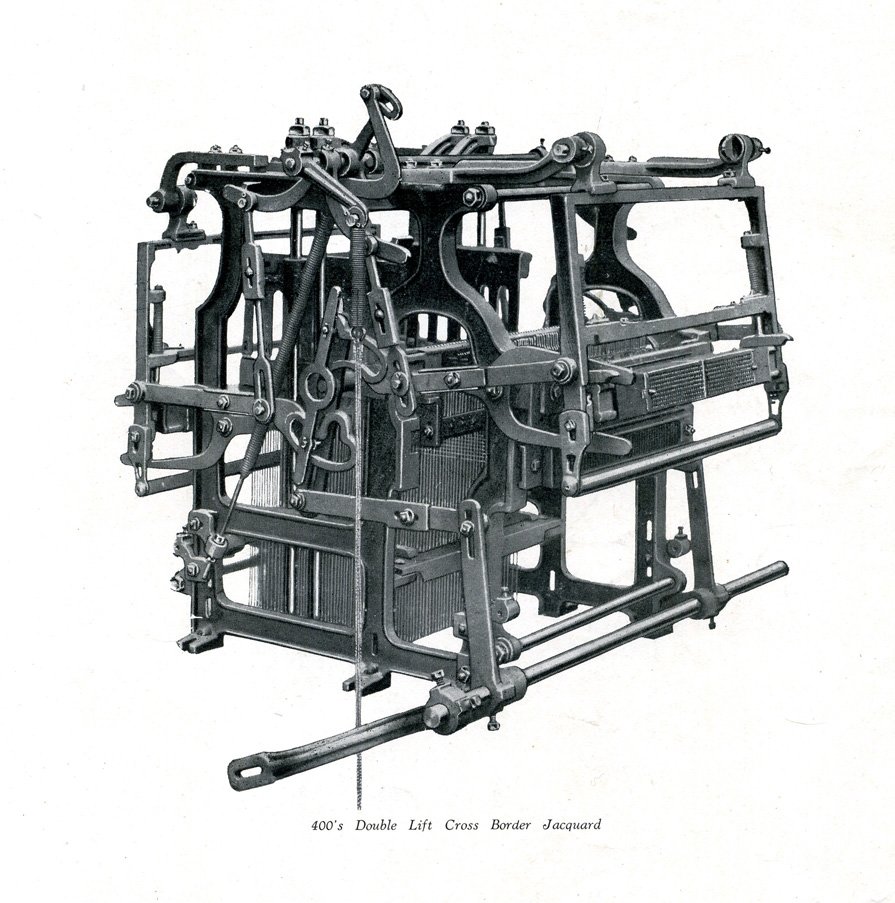

While the shawl and paisley pattern associated with it may have originated in Persia and India, the pattern is named for the city of Paisley, Scotland. By the 19th century the town had become a major center for the weaving industry, in part thanks to Joseph-Marie Jacquard who developed a loom attachment that made the weaving process more efficient.
Larger looms (like the ones used to make shawls) can take up the better part of some rooms, and have hundreds of strings that are woven through to create the shawl’s pattern. Jacquard’s attachment automated the design process using a series of punch-cards. The punch-cards moved over the top of the machine, and allowed the hooks that were attached to all the strings that would be woven through to either lift through a hole to be woven under or stay low to be woven over. With this attachment, all one had to do when operating the loom was pass the wool through.

This attachment would be an early stepping-stone in computer development, and likely influenced British mathematician Charles Babbage. When his plans for the Analytical Engine were released, Ada Lovelace commented:
The Analytical Engine weaves algebraic patters, just as the Jacquard loom weaves flowers and leaves.
Ada Lovelace
The shawl would fall out of style by the end of the 19th century (in large part due to the introduction of the bustle), although Edith Weeks kept an extensive collection of them. One of her shawls is currently on display in her dressing room.
If you would like to visit Salisbury House & Gardens and see the shawl in person, you can go to our website for up-to-date hours and tour times.